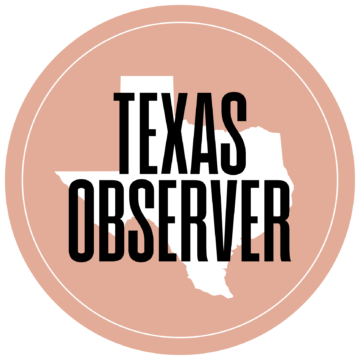Andrew Wheat
In Memory of Campaign Finance Reform

As Memorial Day marks the end of another legislative session, let us pause to remember the many campaign finance reform bills that gave their lives so that Texas politicians might continue to enjoy the fund-raising freedoms that they have grown accustomed to. It all looked so promising just a few short months ago. Last December, an interim legislative panel on campaign finance concluded, in a considerable understatement, that Texas election law “has loop holes which deny the public the capacity to determine the source of campaign funds.” Reform activists from a coalition of 40 environmental, religious, service, and consumer groups started the session organized and energized, boosted by the growing momentum of Senator John McCain’s campaign in Washington. A package of campaign-finance proposals by Representative Pete Gallego (D-Alpine), a close confidant of House Speaker Pete Laney, were among three of the first House bills introduced this session. And new Governor Rick Perry even endorsed better campaign funding disclosure in his State of the State address.
Alas, there is no subject–with the possible exception of sexual morality–that stretches the Machiavellian gap between what politicians say and do quite like campaign finance reform. To be sure, most Texas politicians openly oppose campaign contribution limits, which they equate with Bolshevism–despite the fact that federal candidates have been subject to $1,000 limits for 30 years. (Texas has no limits whatsoever.) Representative Gallego’s contribution limits bill (H.B. 3) proposed indulgent annual contribution limits of $5,000 for House candidates, $10,000 for Senate candidates and $25,000 for statewide candidates. Nevertheless, H.B. 3 was the first to go, dying without even receiving a full House vote.
Next to fall was judicial election reform. People are often shocked to learn that Texas’ state judges get elected with campaign money from people who have cases before the courts. Two plans to end these conflicts of interest–at least for the state’s top judges–died in House committees. Gallego’s proposal to publicly finance appellate judge campaigns (H.B. 4) died in the House Judicial Affairs Committee, which instead reported out a Senate-approved reform bill (S.B. 129). That measure, which would have sought a constitutional amendment allowing the governor to appoint Texas’ top appellate judges, was never brought up for a full House vote.
Reformers held out more hope for Gallego’s H.B. 2, which sought to improve disclosure of contributions. “We decided to focus on the high ground of what the politicians all said they wanted–full and timely disclosure,” said Fred Lewis, a campaign finance reform lobbyist for Campaigns for People. Texas politicians who oppose limits almost universally say that they favor “full and timely disclosure” of their unlimited contributions. If this were true, Gallego’s modest step in this direction should have sailed through. After all, the House passed a similar disclosure bill in 1999 on an overwhelming vote of 138-3. This session, however, H.B. 2 passed the House by a margin of just 21 votes, after running a gauntlet of amendments seeking to weaken its impact. What gives?
One explanation is that some House members who secretly oppose better disclosure may have voted for it in 1999–when they knew the measure was doomed in the Senate. But when H.B. 2 hit the House floor this April, the Senate already had passed its own version of the bill (S.B. 6 by Plano Republican Florence Shapiro). Faced with the prospect of some kind of reform actually being enacted, 52 House members who voted for better disclosure in 1999 turned tail and voted against it this session. The most memorable of these turncoats was Representative David Swinford (R-Dumas), who voted against H.B. 2 despite the fact that he was listed as a co-sponsor of the bill.
This year’s bill contained a new provision requiring disclosure of “candidate-specific advertising” in the last two months of an election. These are ads not generated by a candidate, but by a third–often unnamed–party. This provision is dear to Speaker Laney, who has been hit in the past by anonymously funded attack ads. Conservative groups saw this provision as an unconstitutional limit on free speech, one that would apply even to voter guides that do not explicitly endorse candidates, according to Joe Pojman of Greater Austin Right to Life. The provision narrowly survived Representative Phil King’s (R-Weatherford) amendment to strip it out. Reformers could not fight off, however, an amendment by Representative Helen Giddings (D-Dallas) to kill a crucial provision that would require big donors to disclose their employers and occupations. In the end, House and Senate conference committee members failed to agree on a compromise, and the bill died in the waning hours of the session. In arguing that such disclosure would be too burdensome for poorly paid, overworked legislators, Dallas Democrat Steve Wolens inadvertently delivered a fitting epitaph for this session’s reform efforts. “We are two-bit politicians,” he told his colleagues before the House vote.
Andrew Wheat is research director of Austin-based Texans for Public Justice, a non-partisan, non-profit organization that follows money in Texas politics (www.tpj.org).


